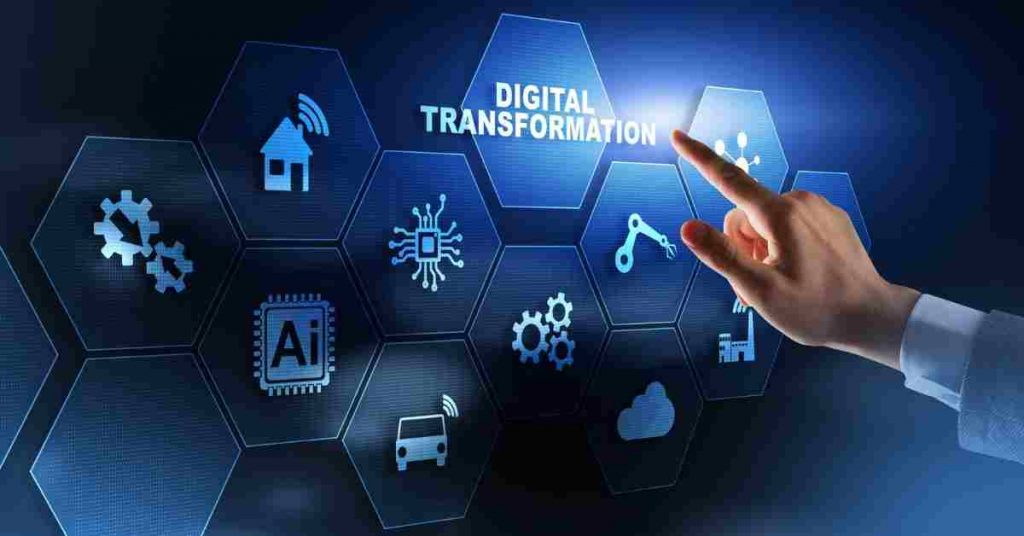How can artificial intelligence help your marketing efforts?
AI has already made a big impact in many industries, and digital marketing is no exception. According to a survey by Statista, 41% of marketers experienced enhanced performance and increased revenue growth as a result of using AI in their marketing campaigns.
As a marketer, it’s important for you to stay ahead of the curve and understand how AI can be used to enhance your strategies. AI has a lot of potential for things like curating content, delivering tailored content, and marketing automation.
With machine learning and applications of artificial intelligence in digital marketing, you no longer have to rely on traditional methods of marketing.
You can employ AI chatbots in your business website to generate sufficient impact to guarantee ongoing growth.
In this article we’ll look at 5 ways digital marketers can leverage artificial intelligence for better ROI.
Let’s get started.
1. Personalized Experience
Consumers’ expectations for personalized experiences are growing every day.
Knowing your present and potential consumers’ needs, preferences, and interests can be challenging.
Businesses struggle to satisfy client expectations and profit from tailored marketing.
According to Gartner, 63% of digital marketing leaders still have trouble providing their clients with personalized experiences. Additionally, it is challenging to create smart material that may be modified in response to a user’s prior actions or interests.
When done correctly, personalisation can enhance revenue, improve customer loyalty and retention, and connect customers more effectively through relevant messaging.
One of the most common applications of artificial intelligence in digital marketing is in the form of personalized recommendations.
According to a press release by Global News Wire, 43% of consumers believe personalized digital ads are necessary.
Machine learning algorithms can create personalized experiences based on a customer’s prior behaviors, purchasing history, demographics, and browsing habits.
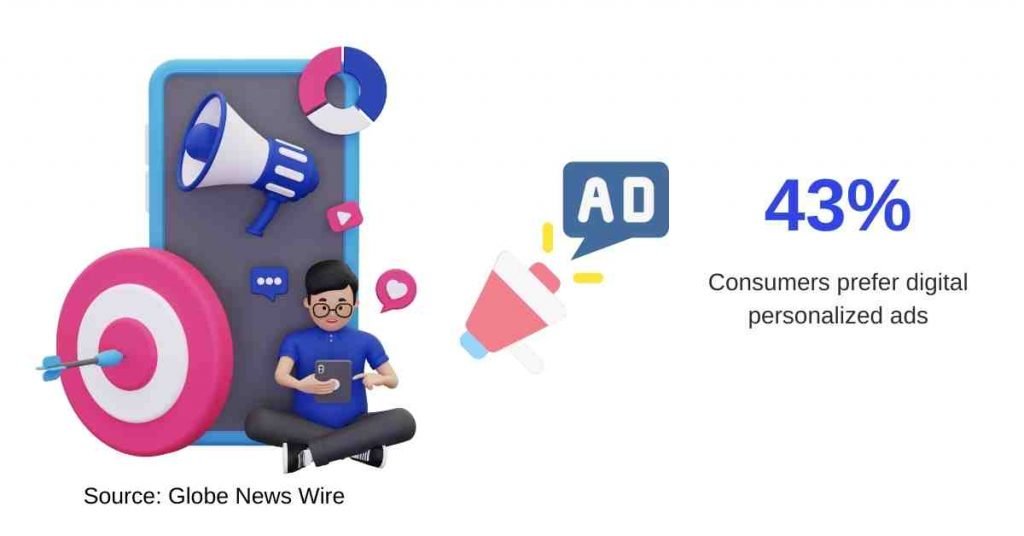
You’ve probably seen this in action yourself, for example, when you’re browsing Amazon and it recommends other products that you might be interested in based on your past purchases.
AI personalization also makes it simple to segment client emails so that customers only receive the information that is most relevant to them.
One of the most well-known automotive e-commerce sites, Autohaus Kunzmann, was experiencing high exit rates from buyers distracted with other products.
They implemented Recombee, an AI recommender, and realized a 14% increase in conversion rate and click-through increase at 8%.
This also made personalization based on user behavior insights and product qualities more efficient.
2. Smart Chatbots
A 24/7 quick response system is challenging for the majority of businesses to provide.
It is common knowledge that clients dislike having to wait to receive the simplest responses to their inquiries. When clients are upset, the issue gets even worse.
According to a Zendesk report, 54 percent of customers feel that most companies they do business with treat customer service like an afterthought. Customer service agents occasionally become overwhelmed making them prone to mistakes leading to poor customer experience.
High bounce and exit rates might have a negative impact on your website SEO strategies if you don’t have chabots that enhance the user experience on your website.
Chatbots are one of the most common applications of artificial intelligence in digital marketing.
By using natural language processing, chatbots are able to understand customer queries and provide accurate responses in real-time.
According to a survey by UserLike, 68% of users appreciated the speedy chatbot responses of their queries.
In addition, chatbots can collect data about customer preferences and behaviors, which can be used to create more targeted marketing campaigns.
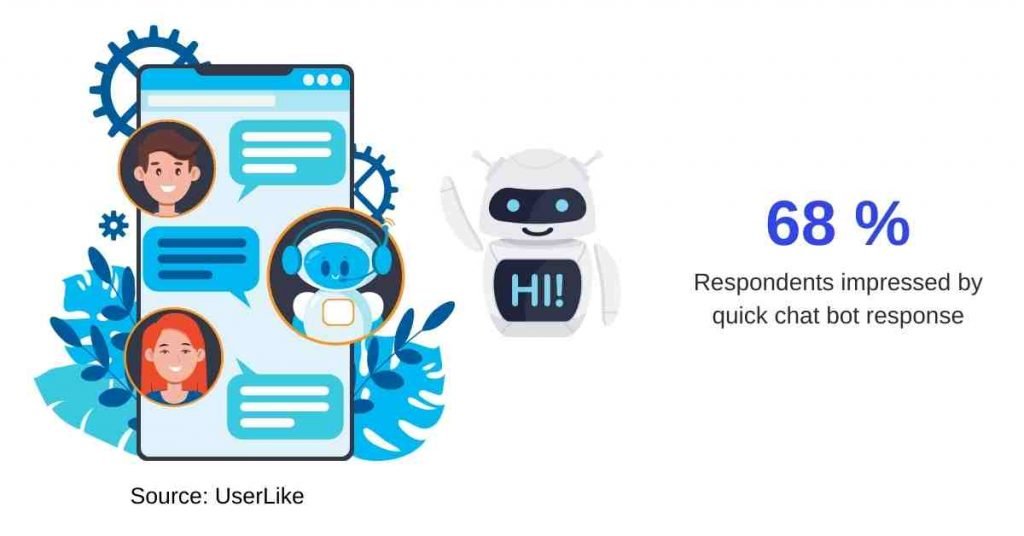
This saves your businesses time and money and it also provides a better customer experience since they don’t have to wait for your response.
AnyMail finder, an email marketing company that assists businesses with email verification, faced difficulties in supporting their clients with routine inquiries.
They leveraged Intercom chat, an AI chatbot. They realized an increase of 60% sales and revenue through the use of its auto-messaging feature and streamlined their customer assistance procedure.
3. Improved Targeting.
One of the biggest challenges in targeting digital marketing is the sheer volume of data that is available.
With so much information available, it can be difficult for you to know where to start.
Businesses are finding it difficult to gain a deeper understanding of their target audience and develop more effective marketing campaigns.
Targeting also requires a careful balance of personalization and privacy. Consumers are increasingly concerned about their online privacy. In fact, according to a report by Visual Objects, 63% of adblock users believe that targeted advertisements utilizing personal data constitute an invasion of their privacy.
Ad targeting is also one of the applications of artificial intelligence in digital marketing. Machine learning algorithms are used to deliver hyper-targeted ads that are more likely to convert than traditional advertising techniques.
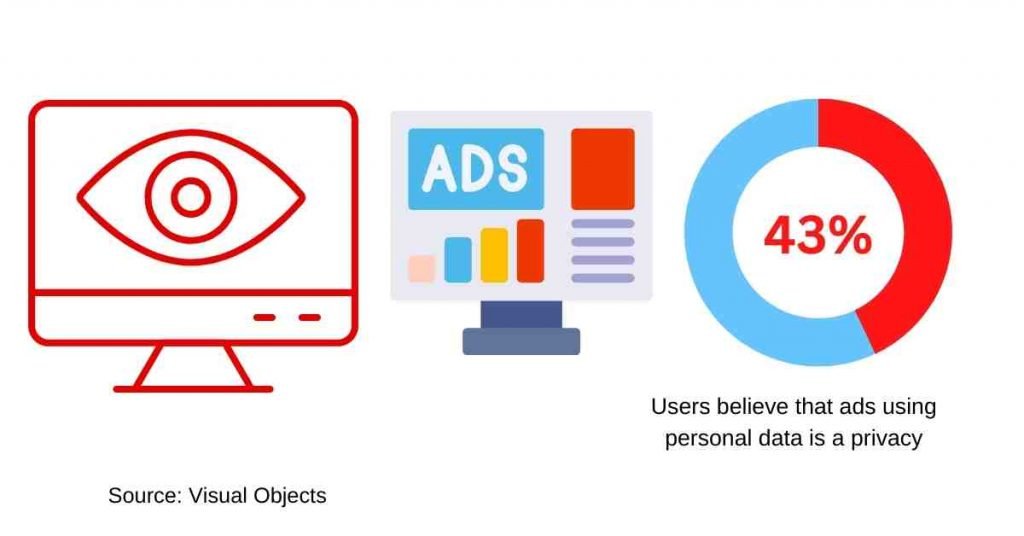
They take into account factors like a user’s browsing history, search history, and even social media interactions when delivering ads.
Improved targeting in digital marketing allows for a more personal and customized approach to advertisements.
As a result, you can achieve higher conversion rates and a lasting impression, as ads are more likely to be relevant and interesting to your target audience.
Ultimately, improved targeting can help you to better achieve your business goals while also saving money.
Walgreens was unable to locate the appropriate customers or offer prompt relief when and where symptoms flared up. By leveraging IBM Watson Advertising, in-store lift increased by 379.98% based on native ads
Watson was able to target consumers making use of weather data to coordinate the management of medical conditions.
4. Content Curation
Finding outstanding, audience-relevant content is difficult.
Thus keeping up with consumer demand for information and entertainment that address their needs is challenging for businesses.
Content curation mainly enables you to identify excellent material that will appeal to your audience.
You can find it challenging to provide well organized and engaging content because of the large amount of data available.
Data is available in almost all places. According to CIO, 80-90% of digital data is unstructured. This makes it difficult for you to sift through this mountain of data and select the most relevant pieces for your audience.
When it comes to content curation, AI is quickly becoming a valuable tool.
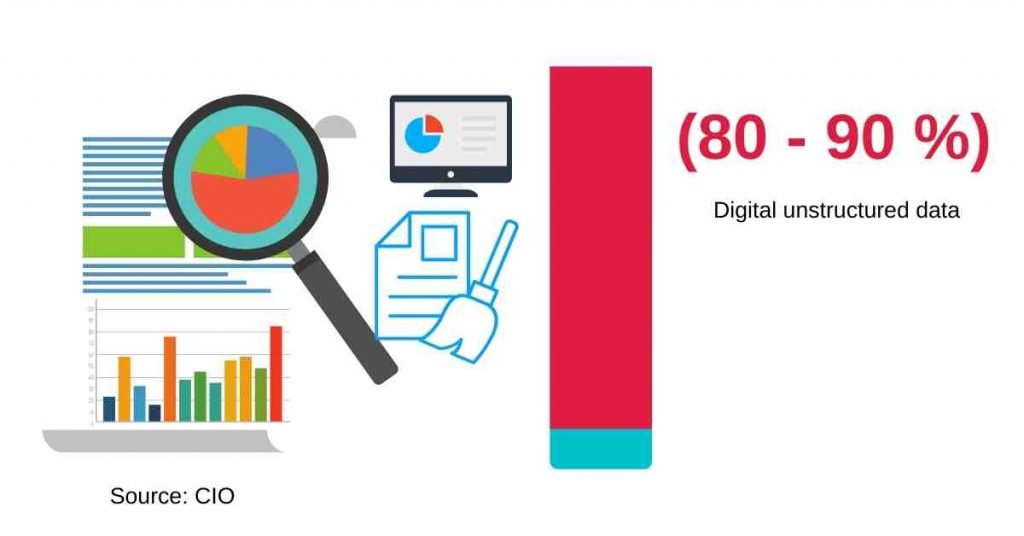
With its ability to sort and analyze large amounts of data, AI can help you to quickly identify relevant, high-quality content. This is where applications of artificial intelligence in digital marketing are crucial to harness your productivity.
Additionally, AI can be used to automatically extract tags and descriptions from content, saving time and effort. As a result, AI is increasingly being used to improve the efficiency and accuracy of content curation.
By harnessing the power of AI, you can easily select the best relevant blog content for your audience.
A startup called Tomorrow Sleep was having trouble getting visitors to their site’s top-notch content. To determine which high-value subjects the organization should be discussing, Tomorrow Sleep started utilizing an AI tool called MarketMuse.
Because of this, they had a 10,000% boost in monthly website traffic and achieved numerous rankings in a single search result.
5. Marketing Automation
Marketing automation is the practice of automating marketing processes.
It’s a great way to scale and improve your digital marketing efforts by streamlining repetitive tasks, freeing up time for more strategic work.
As a digital marketer, this helps you automate the tasks of creating email campaigns, landing pages and other forms of content for your business. With conventional marketing automation, all of the setup, evaluation, and tinkering insights are your responsibility.
Businesses still encounter typical issues like generating leads and maintaining client engagement. They also struggle to exploit massive amounts of data.
Through applications of artificial intelligence in digital marketing, machine learning models enable you to further optimize your processes. Email marketing, for example, is now simplified with this automation.
According to Statista, 4 in 10 marketers think that using AI in email marketing increases market revenue.
To evaluate the behavior of your audience and create more precise segments, employ machine learning algorithms. This includes things like identifying patterns and trends in customer behavior, as well as pinpointing areas for improvement within your business.
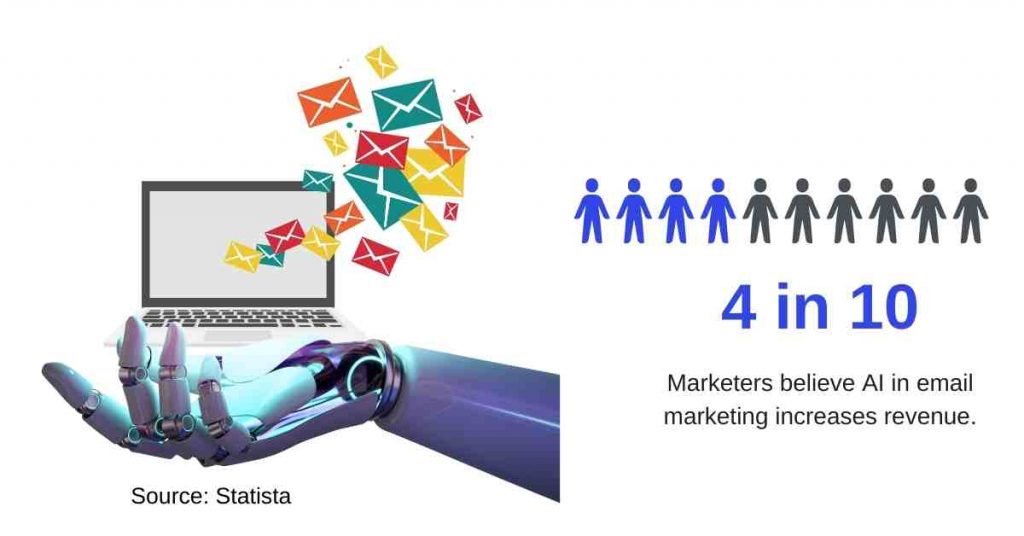
You can qualify leads far more correctly by utilizing machine learning in your marketing automation to uncover trends that you’d probably have missed.
Embla, an online retailer that specializes in home items, was having trouble keeping up with its devoted customer base.
Then they used SMSBump sms automation to run a warm, non intrusive re-engagement campaign to entice inactive consumers back with deals and a tailored experience. It resulted in a 76% click-through rate and a conversion rate of 60%.
Conclusion
The applications of artificial intelligence in digital marketing are limitless.
It’s not just about curating content that is more personalized and appealing to your specific audiences, but also how it can help you improve customer service by using chatbots and targeted ads to your customers.
We have looked at 5 ways digital marketers can leverage artificial intelligence for better ROI. We’d love to hear from you
Reach out to schedule a free consultation call to discuss how I can assist with integrating AI tools into your marketing processes.
I’d be happy to partner with you and help get your business ahead of the curve.

![5 Innovative Applications of Artificial Intelligence in Manufacturing [2021]](https://geokongo.com/wp-content/uploads/2021/09/Applications-of-Artificial-Intelligence-in-Manufacturing-2021-1024x536.jpg)

